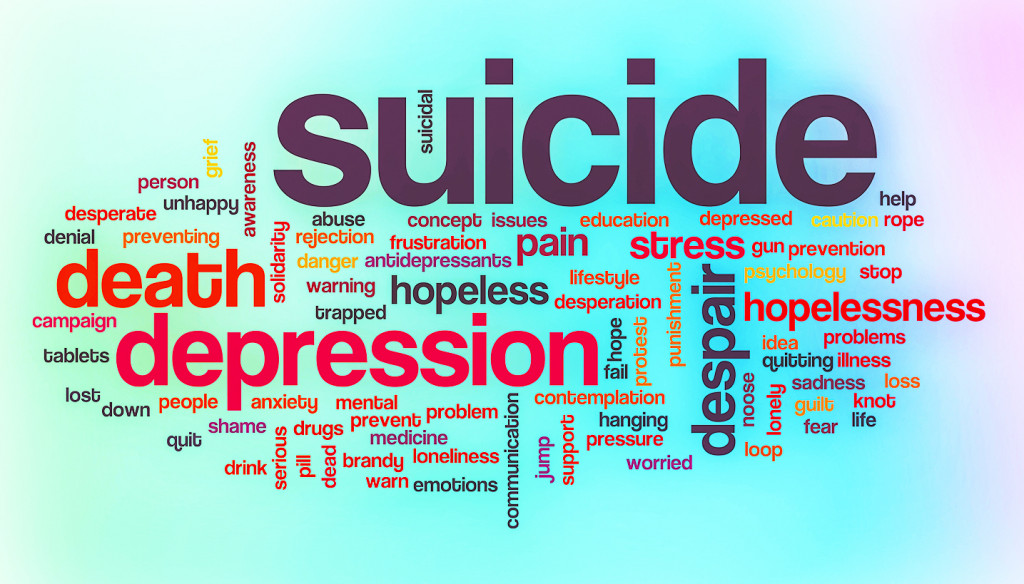Heed the warning signs to prevent suicide

CENTER - Center Police Chief Dale Meek would like to warn local residents about the danger signs of suicide in light of the community’s recent loss at Gunbarrel Station.
Meek cites an article by Jennifer Brown in the Colorado Sun on the increase of suicides in Northwestern Colorado commenting, “I believe this is a good time to address this issue.”
Statistical Data from the Colorado Health Foundation (2014) shows there are 19.4 suicides for every 100,000 residents in Colorado. An estimated 478,000 Coloradans struggle with some form of mental health issues. A large portion of those who have mental health issues will engage in narcotics use as a means to self-medicate, including the overuse of alcoholic beverages. Suicide is the second leading cause of death among our youth. Veterans are nearly twice as likely to commit suicide as compared to the general population.
“There are many current societal stressors being added to our daily lives,” Meek observes. “The COVID-19 restrictions, the negative perspectives of the world being brought into our lives by national and social media and the effects of normal living can all add up to become unbearable which may spawn a personal crisis. Additionally, we are quickly approaching the holidays. This is a time when we historically see a rise in suicide attempts. I am very concerned of how mental wellness will be affected by current events combined with the holiday season and wish to raise awareness.”
Warning signs
Some of the following warning signs are apparent but others are often overlooked until an attempt is made, Meek cautions. Please review these carefully.
• Talking about wanting to die or to kill themselves
• Looking for a way to kill themselves, like searching online or buying a gun
• Talking about feeling hopeless or having no reason to live
• Talking about feeling trapped or in unbearable pain
• Talking about being a burden to others
• Increasing the use of alcohol or drugs
• Acting anxious or agitated; behaving recklessly
• Sleeping too little or too much
• Withdrawing or isolating themselves
• Showing rage or talking about seeking revenge
• Extreme mood swings
• Suddenly giving away treasured possessions or unexpected talks on who should be given possessions in case of death
Risk factors
Warning signs are those “clues” to look for. Combining Warning Signs with Risk Factors should raise concerns over the mental wellbeing of a person.
• Mental disorders, particularly mood disorders, schizophrenia, anxiety disorders, and certain personality disorders
• Alcohol and other substance use disorders
• Hopelessness
• Impulsive and/or aggressive tendencies
• History of trauma or abuse
• Major physical illnesses
• Previous suicide attempt(s)
• Family history of suicide
• Job or financial loss
• Loss of relationship(s)
• Easy access to lethal means
• Local clusters of suicide
• Lack of social support and sense of isolation
• Stigma associated with asking for help
• Lack of healthcare, especially mental health and substance abuse treatment
• Cultural and religious beliefs, such as the belief that suicide is a noble resolution of a personal dilemma
• Exposure to others who have died by suicide (in real life or via the media and Internet)
If you encounter someone who is in a mental health crisis or is contemplating suicide, listen openly and honestly. Refer these people to those in the mental health field who can help which includes our local medical centers, hospitals, the San Luis Valley Behavior Health Services and those additional numbers below.
Resources
•Colorado Crisis Line: 1-844-493-8255 or text TALK to 38255
• National Suicide Hotline 1-800-273-8255 or you can online chat at https://www.google.com/search?q=national+suicide+hotline&rlz=1C1GCEU_enUS901US901&oq=national+suicide+hotline&aqs=chrome..69i57j0l7.5615j0j7&sourceid=chrome&ie=UTF-8
The National Suicide Hotline has additional categories of resources to include but are not limited to Coping During Unrest, Emotional Wellbeing during COVID 19, Youth, Disaster Survivors, Native Americans, Veterans, Loss Survivors, LGBTQ+, Attempt Survivors and they have special “Ayuda En Espanol” for those who speak primarily Spanish. Please look through the online website for many resources.



